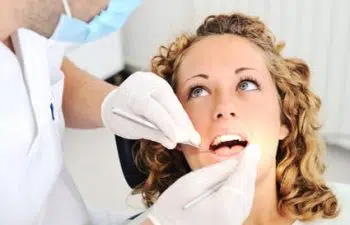Accidents can happen anytime and anywhere. One of the common accidents that occur every day, especially to those people who are engaging in extreme or physical sports, is injury or trauma in the mouth. Injuries in the mouth may result in bleeding and lacerations to the gums and may dislodge or even fracture the teeth. Oral injuries are often painful and should be examined and treated by the dentist immediately to prevent permanent damage or further complications.
Dental emergencies that involve injury to the teeth and gums can cause potential harm to one’s oral health, and that should not be ignored. Below are the following common dental problems and how to handle them when an emergency arises:
Toothaches
When experiencing a toothache, one must rinse their mouth with warm water thoroughly. Use dental floss to remove any lodged food particles in between teeth. If the mouth is swollen, apply a cold compress to the cheeks where swelling is present. Avoid putting aspirin or any painkiller against the gums near the aching tooth because it may burn the gum tissue. If the pain persists, see the dentist immediately.
Knocked out tooth
If a tooth is knocked out, hold it by the crown and rinse off the root of the tooth with water if it is dirty. Do not scrub or remove any attached tissue fragments. If possible, gently insert the tooth back in its socket and make sure that it is inserted correctly. If it is not possible, place it in a small container of milk or a cup of water with a pinch of salt and see the dentist right away.
Chipped or broken teeth
For chipped or broken teeth, as much as possible, save any pieces. Rinse the mouth with warm water as well as the broken pieces of the tooth. If there is any bleeding, place a gauze pad on that area until the bleeding stops. Apply a cold compress to the outside of the mouth, cheek, or lip near the affected area to keep any swelling down and relieve pain. Contact the dentist immediately to treat the chipped or broken teeth.
Broken braces and wires
If a wire breaks and is causing extreme discomfort in the mouth, try using the eraser end of a pencil to push the wire into a more comfortable position. If it is impossible to reposition the wire, cover its end with orthodontic wax, small cotton ball, or a piece of gauze until they get into the dental office. Always remember never to cut the wire as they could end up swallowing or breathing it into the lungs.
Soft tissue injuries
Injuries to the soft tissue include lips, gums, tongue, and cheeks can result in bleeding. When this happens, rinse the mouth with a mild water solution, and using a moistened gauze or a tea bag, apply pressure to the area where bleeding is present. Hold it in place for about fifteen to twenty minutes. Apply a cold compress to the outside of the mouth or cheek in the affected area for about five to ten minutes to control the bleeding and relieve pain. If the bleeding persists, see the dentist immediately or go to a hospital emergency room. Continue applying pressure on the affected area with gauze until it is examined and treated.
You deserve outstanding dental care services. We provide Emergency Dentistry in Boyertown, PA. Book your appointment with us at Bear Valley Dental Care and let us help you achieve beautiful and healthy teeth!

